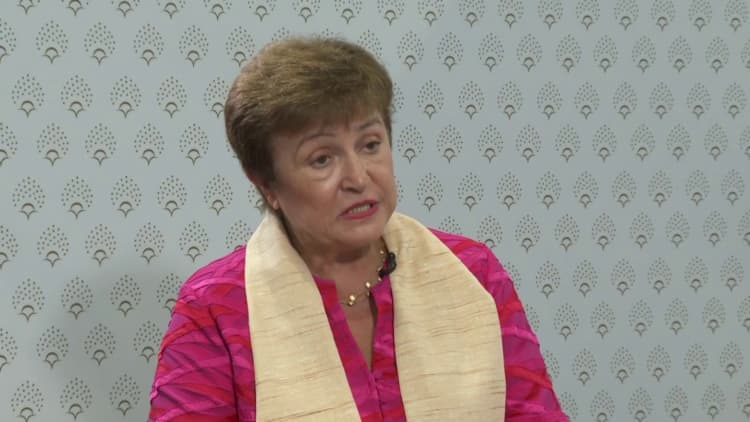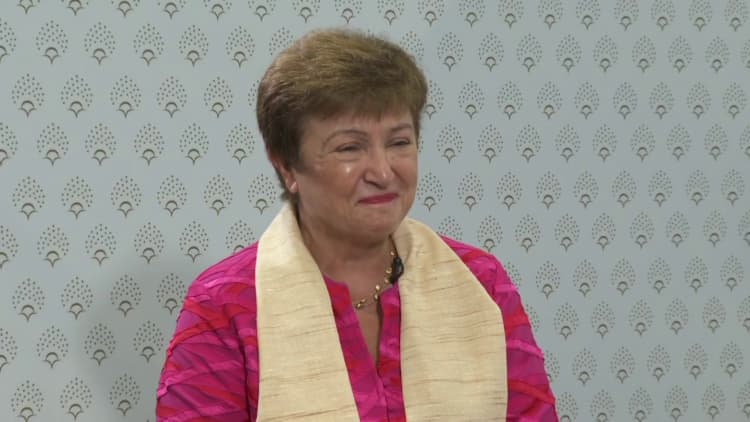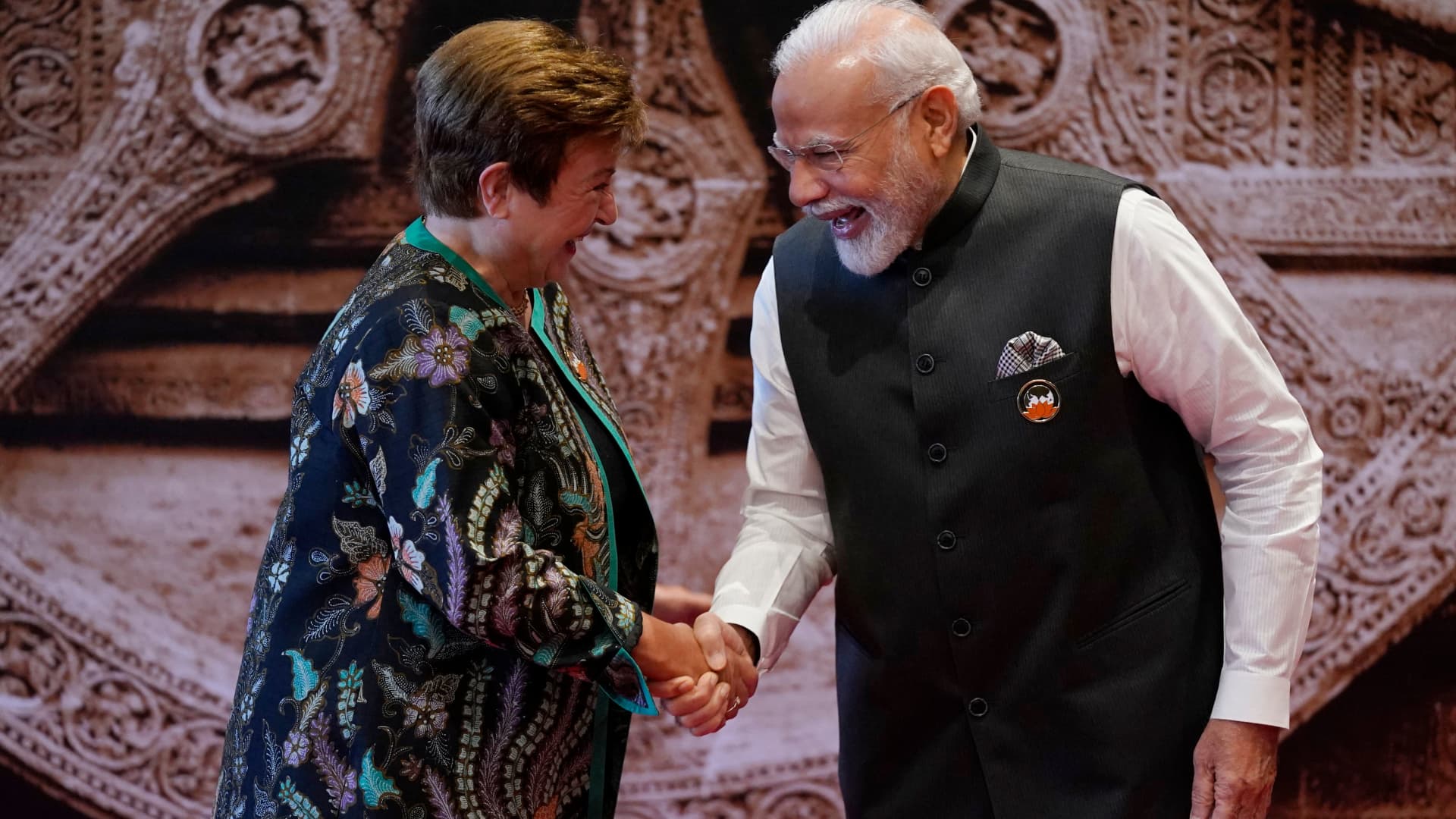India’s Prime Minister Narendra Modi (R) shakes hand with International Monetary Fund Managing Director Kristalina Georgieva ahead of the G20 Leaders’ Summit at the Bharat Mandapam in New Delhi on September 9, 2023.
Evan Vucci | Afp | Getty Images
NEW DELHI — According to the International Monetary Fund’s Managing Director Kristalina Georgieva, the Biden-led rail-to-sea economic corridor connecting India with Middle Eastern and European countries should be inclusive and promote an integrated world economy.
With global supply chains realigning along shifting geopolitical lines, President Joe Biden’s initiative aims to counter China’s influence in the energy-rich Middle East and Beijing’s Belt and Road infrastructure initiative. However, a fragmented global economy is hindering global trade growth, which is currently lagging behind global economic growth.
“If we want trade to be an engine of growth, then we have to create corridors and opportunities,” Georgieva told CNBC’s Martin Soong at the Group of 20 leaders’ summit in New Delhi.
“What is important is to do it for the benefit of everybody, and not exclude others,” she said. “In that sense, I would encourage all countries to work collaboratively for an integrated economy.”

During the leaders’ summit, Biden and Indian Prime Minister Narendra Modi announced their plan to develop a network of railways and sea routes connecting India, the European Union, and Middle Eastern countries such as Israel, Jordan, Saudi Arabia, and the United Arab Emirates in a transformative regional investment.
This deal signifies the growing partnership between India and the US, as well as their determination to present themselves as a more viable strategic proposition in meeting the developmental needs of the Global South.
Virtuous cycle
In reality, the Biden-backed economic corridor builds upon existing infrastructure investments in the regions involved. The countries will meet in the next two months to develop an action plan with specific timelines, which are currently lacking.
“In a world where we have learned from Covid and the war in Ukraine that supply chains need to be reinforced and diversified, connectivity is of great importance,” Georgieva said in an exclusive interview with CNBC.
“Investing in infrastructure connectivity provides a platform for trade among nations, benefiting the countries involved and the global economy through positive spillover effects,” she added.
Georgieva’s comments were made after the summit, during which Russian and Chinese opposition to references about the ongoing war in Ukraine nearly derailed consensus on a joint communique that typically binds G20 member states.
The Delhi Declaration, eventually adopted on Saturday, has the G20 nations pledging to protect the most vulnerable in the world by promoting equitable growth and enhancing macroeconomic and financial stability. Under Modi’s leadership, India’s presidency of the G20 focused on elevating the Global South’s position on the agenda.
Among the issues on the agenda was multilateral bank reform, which includes the establishment of a global framework for restructuring sovereign debt, particularly for vulnerable developing economies.
The IMF has warned that the economic recovery after a series of major shocks is slow and uneven, with medium-term growth prospects being the weakest in decades due to persistently high inflation, interest rates, and fragmentation.
“I call on our members to strengthen the global financial safety net,” Georgieva said in a press release issued shortly after the G20 summit concluded.

“Since the start of the pandemic, the IMF has injected $1 trillion in reserves and liquidity through lending to nearly 100 countries and the historic special drawing rights allocation. I thank our members for helping us achieve the goal of channeling $100 billion to vulnerable countries,” she added.
The IMF is currently undergoing its 16th quota review, which is expected to conclude by the end of the year. These reviews are conducted every five years to assess the Fund’s ability to meet the balance of payments financing needs of member states and adjust their quotas based on changes in their relative positions in the global economy.
“To make the global economy stronger and more resilient in a world prone to shocks, it is crucial to reach an agreement to increase the IMF’s quota resources before the end of the year and secure the necessary resources for interest-free support to the poorest countries through the Poverty Reduction and Growth Trust,” Georgieva added.
Correction: This story has been updated with the correct reference for the acronym SDR.
Denial of responsibility! Vigour Times is an automatic aggregator of Global media. In each content, the hyperlink to the primary source is specified. All trademarks belong to their rightful owners, and all materials to their authors. For any complaint, please reach us at – [email protected]. We will take necessary action within 24 hours.


